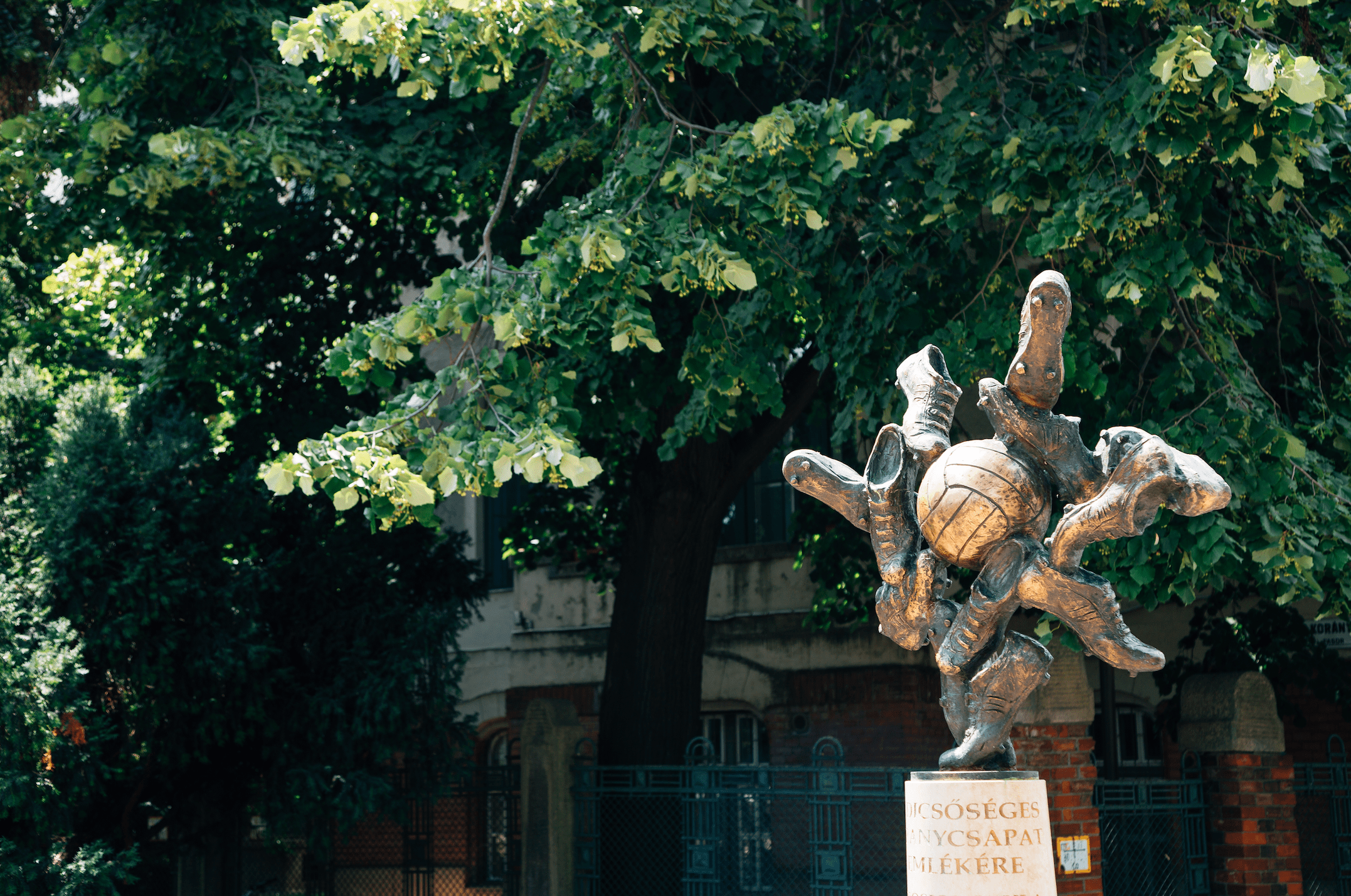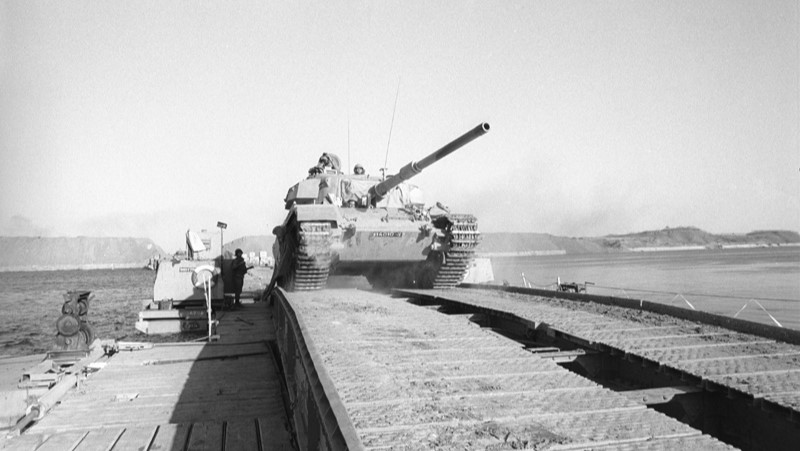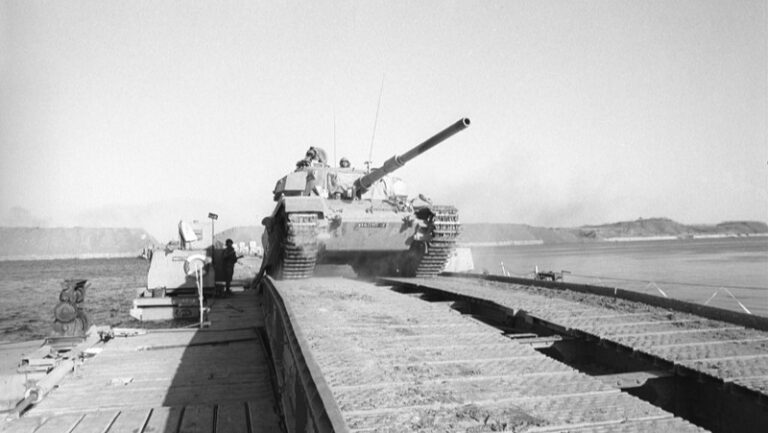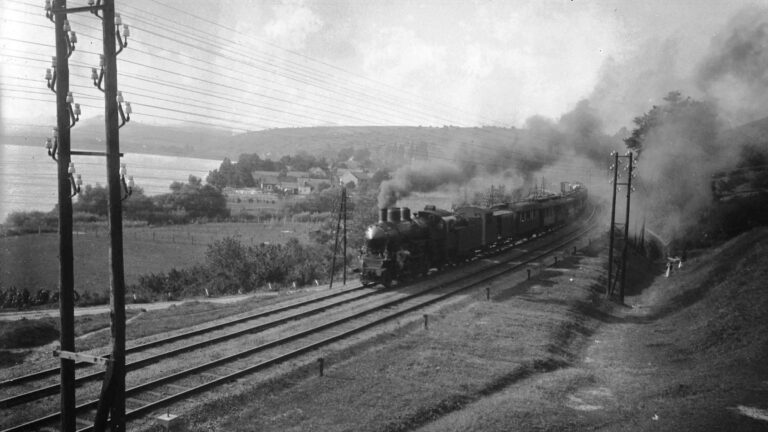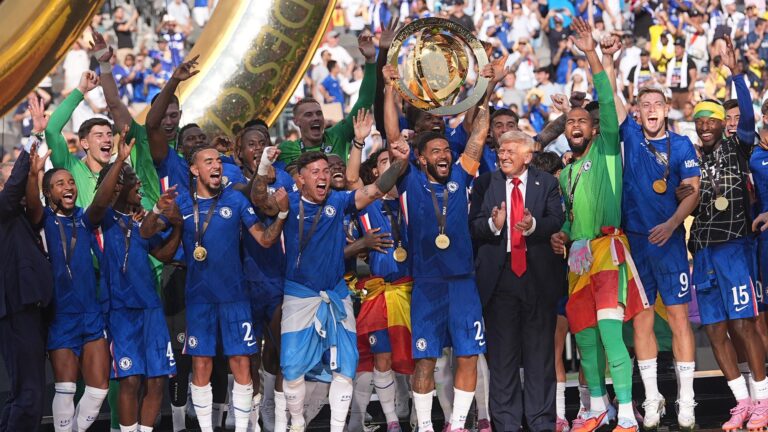In the last couple of days Hungarian news were filled with reports about football. Politicians, public figures and citizens were united over celebrating the Hungarian team’s victory in Wolverhampton. England suffered a humiliating defeat from the Hungarian team – its the greatest home loss since 1928 – no one has scored 4 to 0 against England in the last 94 years.[1] As a result, Hungary is first (followed by Italy, Germany, and England) in its UEFA Nations League group. Hungary’s victory in England echoed the 1950s – in 1953 Hungary defeated England (on home soil) on the “match of the century” to 6 – 3. The Hungarian team was the first continental team to have ever defeated England at home.[2] A year later, in 1954, weeks after the start of the World Cup, the vengeful English team was defeated one more time by the Hungarian team (playing home) to 7 to 1. This is the heaviest defeat that England has ever suffered in its football history.
The team, the so-called ’Golden Team’ (Aranycsapat) or the ‘Mighty Magyars’ that inflicted these defeats on England was considered to be one of the best football teams in the world in the 1950s. The captain of this team, Ferenc Puskás, gained international recognition and fame – and he still enjoys a great popularity both in Hungary and abroad for his achievements. The team under his leadership has first won a gold medal in the 1952 Helsinki Olympic Games. From this victory on, the team went on practically undefeated until 1954. More precisely, between 4 June 1950, and 14 October 1956, (last match of the Golden Team) the team has played 64 matches – from these matches they won 49, had 10 draws and suffered 5 losses. Much of Hungary’s current pride and interest in football dates back to this period and to the successes of the Golden Team.[3]
The internationally well-known success of the Hungarian team gave back some of the pride and confidence of the nation in itself
The sport achievements of the Golden Team came in troubled times – Hungary was after the loss of the Second World War, the Holocaust, with the Stalinist-style communist dictatorship of Mátyás Rákosi being at its peak. Football, and the internationally well-known success of the Hungarian team gave back some of the pride and confidence of the nation in itself.[4] While public discussions were monitored and censored by the one-party state, sport became an issue all could cherish free and worriless. The success of the team also gave an easy opportunity for the regime to promote itself and pretend that the achievements of the football team are the regime’s triumphs too.
Famously, the team has eventually lost 3 to 2 at the World Cup’s final against (West) Germany in 1954 in Bern. The defeat was unexpected and tragic for the country as in the first round they already defeated Germany 8 to 3 (and they had been unbeaten on their last 32 matches). The sense of loss also prompted some anti-Communist demonstrations in Hungary, which had to be repressed by the regime.[5] The ‘soccer revolution’ was the first major mass demonstration against the regime, and therefore, it is also believed to be the prelude to the Revolution of 1956. Beyond the mass protests, the sorrow and disappointment over the defeat has also given rise to a number of conspiracies – about the role of the referee (all of the referee’s decisions favoured Germans and one of Puskás’ score was ruled out), there were allegations of bribes, blackmailing – and even rumours about the substance misuse of the German team.[6]
The conspiracies that winning or losing was out of the team’s control was reinforced by the fact that they won only once against the Soviet Union (in 1956, in the dawn of the Revolution, breaking the USSR’s unbeaten home record – needless to say, it did not improve relations between the two countries). Since Hungary at the time was in the sphere of influence of the Soviet Union, it is widely believed that the Golden Team was not allowed to win against the USSR.
Hungary’s interest, national pride and longing for success in football can be traced back to the cherished memory of the Golden Team. The nostalgia about the Mighty Magyars explains the national excitement about the present team’s success against England.
[1] David Hytner, ’England humiliated by Hungary in worst home defeat in 94 years’, The Guardian, (2022), https://www.theguardian.com/football/2022/jun/14/england-hungary-nations-league-match-report, accessed 15.06.2022.
[2] Miklós Hadas, ’Football and Social Identity: The Case of Hungary in the Twentieth Century’, The Sports Historian, 20:2, (2000), 55p.
[3] ’Az Aranycsapat legendája’, Magyar Labdarugó Szövetség, (2015), https://www.mlsz.hu/hir/az-aranycsapat-legendaja, accessed 15.06.2022.
[4] Gábor Vermes, ’Review of Borsi-Kalman, Bela. Az aranycsapat es a kapitanya (The golden team and its captain). Budapest: Kortárs Kiadó, 2008’, Austrian history yearbook 42 – Book Reviews, (2011).
[5] Róbert Győri Szabó, ’Football and Politics in Twentieth-Century Hungary’, The International Journal of the History of Sport, (2019), 10–11.
[6] ’Stoplis Adidas-cipő és metamfetamin is segítette a nyugatnémet válogatottat az Aranycsapat elleni VB-döntőben’, Múlt-kor, (2019), https://mult-kor.hu/stoplis-adidas-cipo-es-metamfetamin-is-segitette-a-nyugatnemet-valogatottat-az-aranycsapat-elleni-vb-dntoben-20190704, accessed 15.06.2022.

